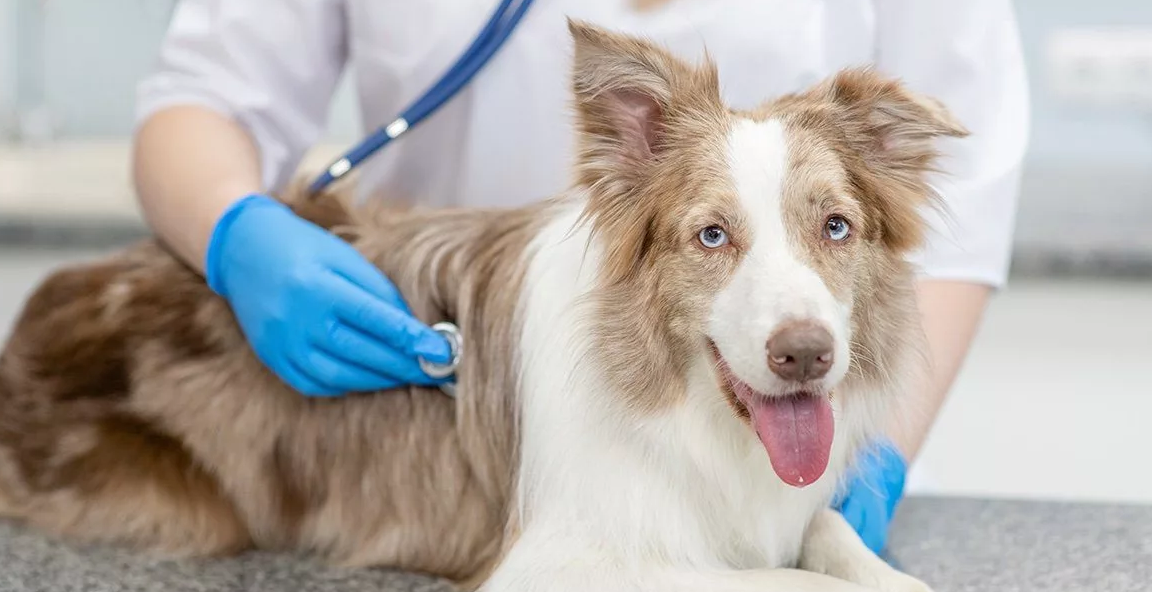Worms in dogs are a common, albeit unpleasant, occurrence. While these unwelcome guests rarely pose a direct threat to humans, the prospect of their spread within your household, or even to other pets, can be concerning. This begs the question: should you quarantine your dog with worms?
The answer, as with most things in life, isn’t a simple yes or no. It depends on various factors, including the type of worm, the severity of the infection, and your living situation. This guide will delve deep into the world of canine worms, exploring the different types, their transmission risks, and whether quarantine is necessary.
Common Types and Transmission
Several types of worms can infest your dog, each with its unique characteristics and transmission methods. Here’s a closer look at the most common culprits:
- Roundworms: These spaghetti-like worms are transmitted through contaminated soil, feces, or infected prey. Puppies are particularly susceptible, often acquiring them from their mothers. While not directly transmissible to humans, accidental ingestion of infected eggs poses a risk.
- Hookworms: These nasty critters latch onto your dog’s intestines, feeding on blood. Transmission occurs through skin contact with contaminated soil or through the mother to puppies. Hookworm larvae can burrow into human skin, causing itchy irritation.
- Tapeworms: These segmented worms come in various forms, with most requiring an intermediate host (like fleas or rodents) for transmission. Direct dog-to-human transmission is unlikely, but accidental ingestion of infected fleas or eggs is possible.
- Whipworms: These thin, whip-like worms reside in the large intestine and spread through contaminated feces. Direct transmission to humans is rare, but proper hygiene is crucial to prevent accidental ingestion.
Signs and Symptoms of Worm Infestation
Spotting worms in your dog’s stool is the most obvious sign of infestation. However, some worms, like hookworms, might not be visible. Watch out for these general signs that could indicate a wormy problem:

- Diarrhea or vomiting
- Scooting on the ground
- Potbelly appearance
- Weight loss despite a healthy appetite
- Lethargy or weakness
- Coughing (in some cases)
Weighing the Risks and Benefits
Now, to the question that brought you here: quarantine or no quarantine? Here’s the breakdown:
When Quarantine Might Be Necessary:
- Heavy worm burden: If your dog has a severe infestation, particularly with hookworms or whipworms, quarantining them can help prevent widespread contamination in your house.
- Multiple pets: If you have other pets susceptible to the same type of worm your dog has, isolating them can minimize the risk of transmission.
- Pregnant or immunocompromised individuals: In households with pregnant women, young children, or individuals with weakened immune systems, extra caution is warranted. Quarantine your dog to shield these vulnerable individuals from potential risks.
When Quarantine Might Not Be Necessary:
- Light worm burden: If your dog has a mild case of roundworms or tapeworms, strict quarantine might not be necessary. Regular treatment and good hygiene practices can effectively manage the situation.
- Single pet household: If your dog is the only furry friend in your home, the risk of transmission within the house is minimal.
- Proper sanitation: With meticulous cleaning and disinfection of potentially contaminated areas, quarantine might not be essential.
Remember: Consulting your veterinarian is crucial. They can assess the severity of the infection, the type of worm involved, and your specific living situation to determine the appropriate course of action, including whether quarantine is necessary.
Essential Steps for Worm Management
Whether you quarantine your dog or not, here are some crucial steps to effectively manage and prevent worm infestations:

- Regular deworming: Follow your veterinarian’s recommended deworming schedule based on your dog’s age, lifestyle, and risk factors.
- Preventative measures: Practice good hygiene, clean up feces promptly, and use flea and tick prevention to control intermediate hosts.
- Regular fecal exams: Schedule routine fecal exams to detect worm infestations early on when they’re easiest to treat.
- Maintain a clean environment: Regularly clean and disinfect your dog’s living areas, bedding, and food and water bowls.
Additional Tips for Peace of Mind
- Communicate with your vet: Ask questions, express concerns, and seek guidance every step of the way. Your veterinarian is your best resource for personalized advice and support.
- Manage your expectations: Treatment takes time. Don’t expect immediate results. Be patient, follow your vet’s instructions diligently, and monitor your dog’s progress.
- Reduce stress for your dog: A stressed dog is a susceptible dog. Maintain their routine, provide ample affection, and engage in calming activities to minimize stress.
- Practice good hygiene: Wash your hands thoroughly after handling your dog’s waste, food, or bedding. This is especially important for children and individuals with weakened immune systems.
- Educate others: Share information about worm prevention and transmission risks with family members, dog walkers, and anyone who interacts with your furry friend.
- Utilize online resources: Reputable websites from veterinary organizations or animal welfare groups can provide additional information and support.
Remember, prevention is key: Regular deworming, proper hygiene, and preventative measures like flea and tick control are the best ways to keep your dog worm-free and your household safe.
Beyond Worms: Addressing Other Parasite Concerns
While worms are a common concern, remember that other parasites can also threaten your dog’s health. Be mindful of these additional threats:
- Fleas and ticks: These blood-sucking pests can transmit diseases and cause discomfort. Use year-round prevention to keep them at bay.
- Heartworms: This potentially fatal parasite resides in the heart and lungs. Monthly preventive medication is essential.
- Giardia: This microscopic parasite causes diarrhea and dehydration. Prompt veterinary care and good hygiene are crucial.
Building a Healthy Bond with Your Furry Friend
Remember, having a dog with worms doesn’t define your relationship. With proper treatment, preventative measures, and a positive attitude, you can overcome this challenge and build a strong, healthy bond with your furry companion.

Resources & References
- American Veterinary Medical Association: https://www.avma.org/
- Centers for Disease Control and Prevention: https://www.cdc.gov/index.htm
- World Health Organization: https://www.who.int/
- Companion Animal Parasite Council: https://capcvet.org/
FAQs About Quarantining Dogs with Worms
Should I always quarantine my dog if they have worms?
Not necessarily. The need for quarantine depends on several factors, including the type and severity of the worm infestation, the number of pets in your household, and the presence of vulnerable individuals like pregnant women or young children. Consult your veterinarian for personalized advice.
Which types of worms require stricter quarantine measures?
Hookworms and whipworms, due to their transmission through feces, might warrant quarantine, especially in shared living spaces with other pets or vulnerable individuals. Roundworms and tapeworms pose lower transmission risks, potentially making quarantine less necessary.
How long should I quarantine my dog with worms?
The quarantine duration depends on the worm type, treatment plan, and your veterinarian’s recommendations. Typically, it lasts until the treatment is complete and follow-up fecal tests confirm the absence of worms.
What are some alternative measures if quarantining isn’t feasible?
If complete isolation is challenging, meticulous cleaning and disinfection of potentially contaminated areas and practicing strict hygiene can minimize the risk of transmission. Confining your dog to a designated room with controlled access can also be an option.
Can I still walk my dog with worms if I quarantine them?
Yes, but with precautions. Choose secluded areas away from other dogs and children, keep your dog on a leash to prevent contact with contaminated soil, and immediately dispose of waste bags in sealed containers.
What are some additional tips for preventing worm infestations in my dog?
Regular deworming based on your vet’s recommendations, practicing good hygiene (cleaning feces promptly), using preventative measures like flea and tick control, and scheduling routine fecal exams are crucial steps toward keeping your dog worm-free.







